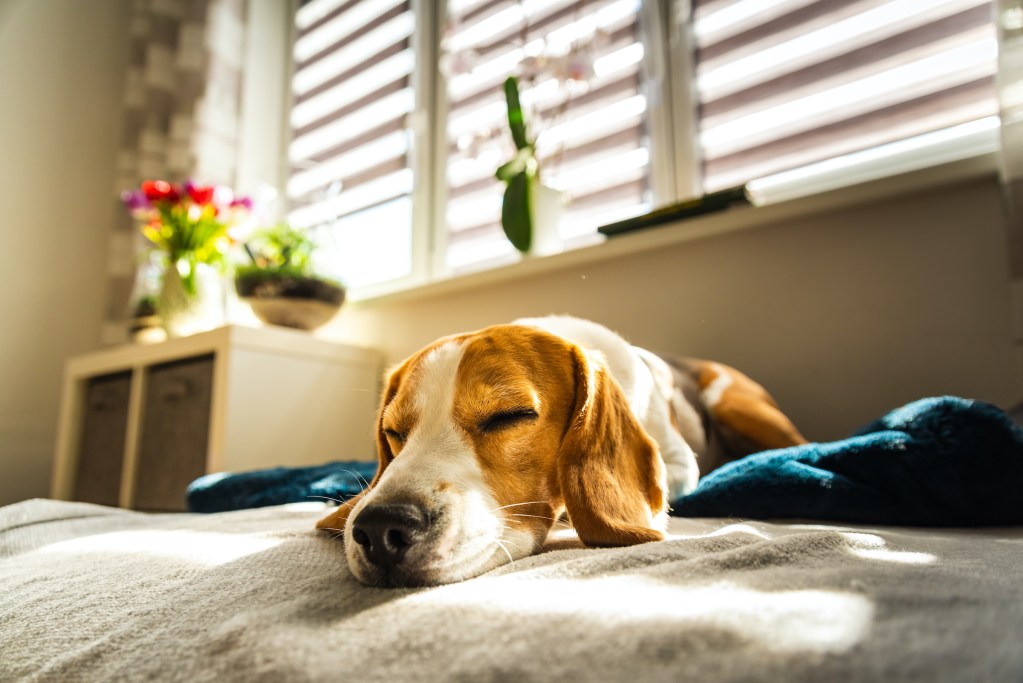
There are a few things dogs all have in common, but most importantly, they love to snooze. Every dog’s sleep schedule is different, though. Some seem to be asleep all the time, while others are ready to go at the crack of dawn for a morning walk. Because of all these differences, it can be tricky to determine how much sleep is the right amount for your beastie, or if your dog might be lying around too much. And should you be concerned that he’s napping more because he’s sick or bored?
There are lots of questions — we know — so we’re here to help you solve them all. You’ll learn the answer to, “How many hours a day dogs sleep?” and more. Don’t stress — we’ll help you figure it out!
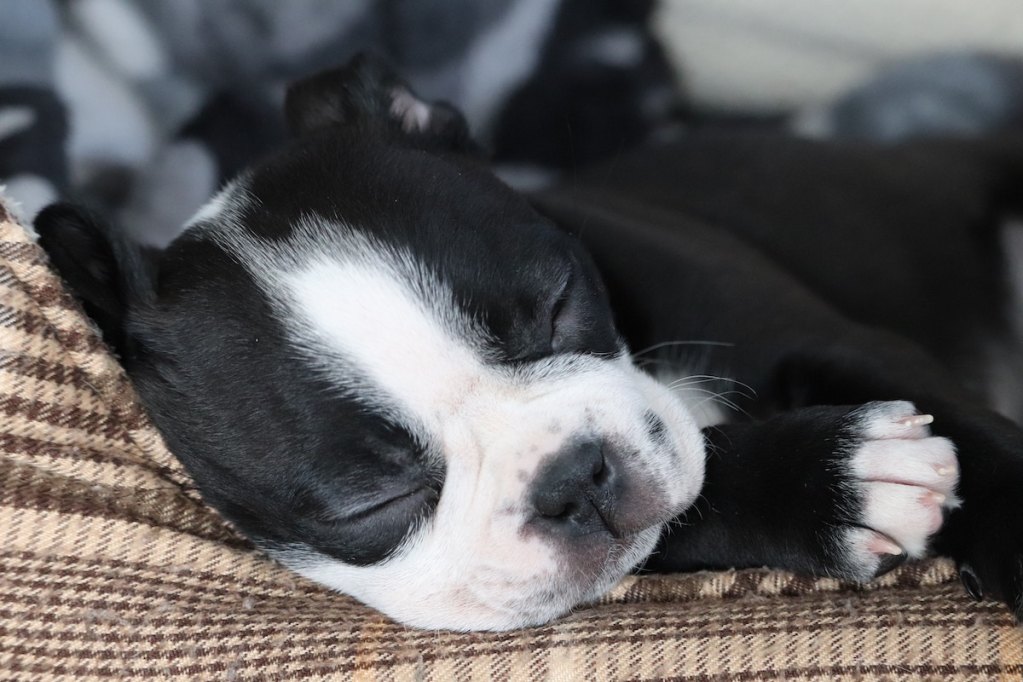
Why do dogs sleep so much?
You’ll notice that both dogs and cats have a reputation for sleeping a lot (felines can be asleep for up to 20 hours per day), and the reason is rooted in biology. Historically, carnivores tend to sleep more than plant-eating creatures because they don’t have to keep a lookout for predators (since they are the predators).
On the flip side, those at the bottom of the food chain always have to rest with one eye open. These instincts are still active in today’s dogs and cats! And just like with humans and other animals, a pup’s sleep schedule changes considerably over the course of his lifetime and may vary by breed as well.
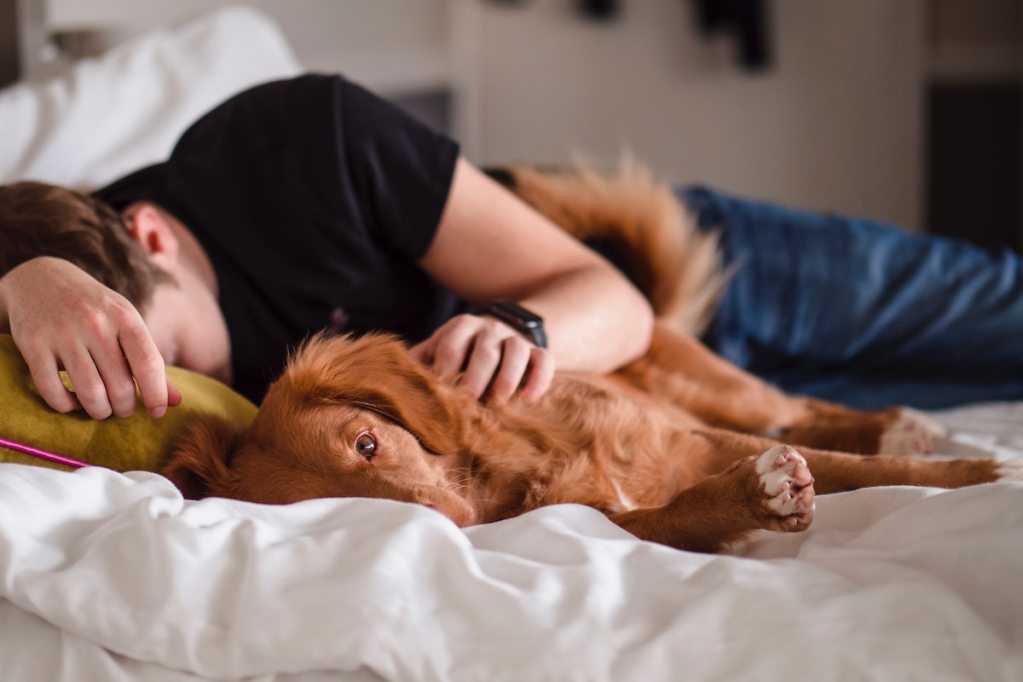
How many hours does a dog sleep per day, on average?
As we mentioned, what’s considered “normal” entirely depends on your specific animal and a few other factors. On average, though, an adult dog sleeps about 10 hours per day. Here’s how it breaks down by age.
Puppies sleep nearly all day, every day!
Puppies need a lot of sleep to help them grow, but they might not catch a lot of their Z’s at night. According to the American Kennel Club, your little buddy should sleep 18 to 20 hours per day. They could stay up half the night and then power nap the day away, though. That’s normal! Just as a human baby won’t make it through the night for the first few months, a baby dog needs practice getting enough rest after dark. Crate training and plenty of exercise can help direct your bundle of joy into a better schedule, especially once they’re a bit older.
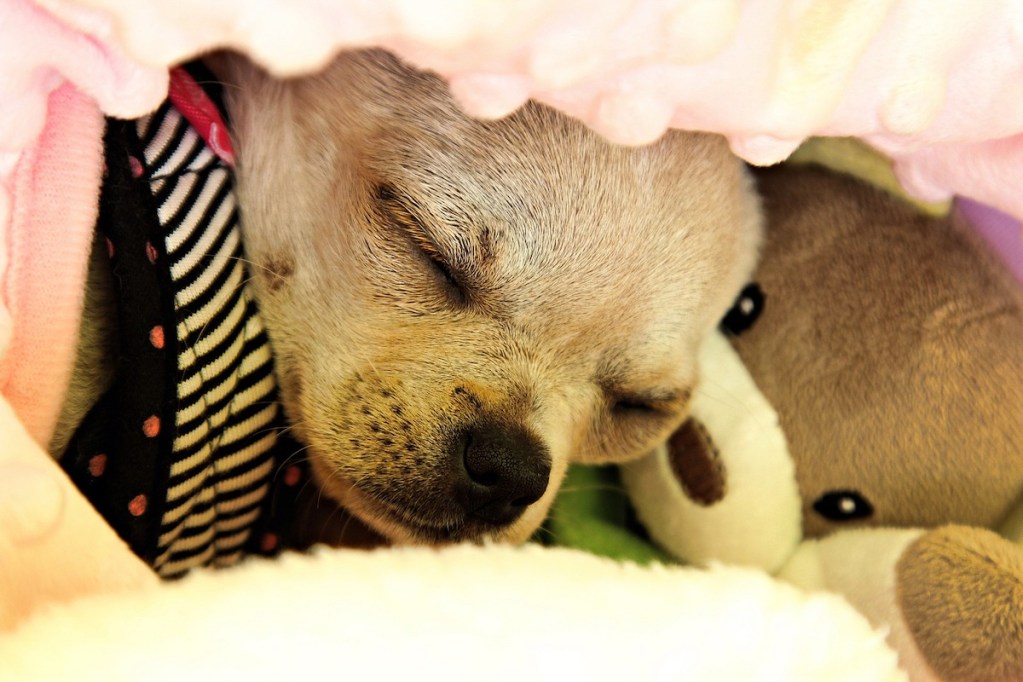
Adult dogs sleep about half of each day, on average
Most canines between the ages of 2 and 8 years old sleep somewhere in the 8- to 12-hour range. However, this varies a lot by breed and a few other factors, so don’t be alarmed if your pup sleeps more or less frequently.
First, small dogs sleep a lot more than medium and large dogs — and we mean A LOT more. In fact, don’t panic if your toy breed never makes it past the puppy stage in terms of dozing hours. Some little Fidos (such as Chihuahuas and Yorkies) sleep for up to 18 hours per day because of their fast metabolisms.
On the flip side, very large breeds, like Great Danes, might be out for a similar number of hours. Of course, the amount of exercise contributes to this calculation as well. Expect your pooch to conk out after a long run or a hard day of work chasing squirrels in the yard.
Senior dogs
As your precious pup gets older, he starts to slow down. And that’s OK! Let him enjoy his golden years on a soft bed (or in yours) for 16+ hours per day. Sleep can be a sign of underlying health conditions, some of which go hand in hand with aging, so keep that in mind when you work with your vet on a senior dog care plan. Gradual changes are generally not cause for concern, but sudden changes should be brought up to your vet.
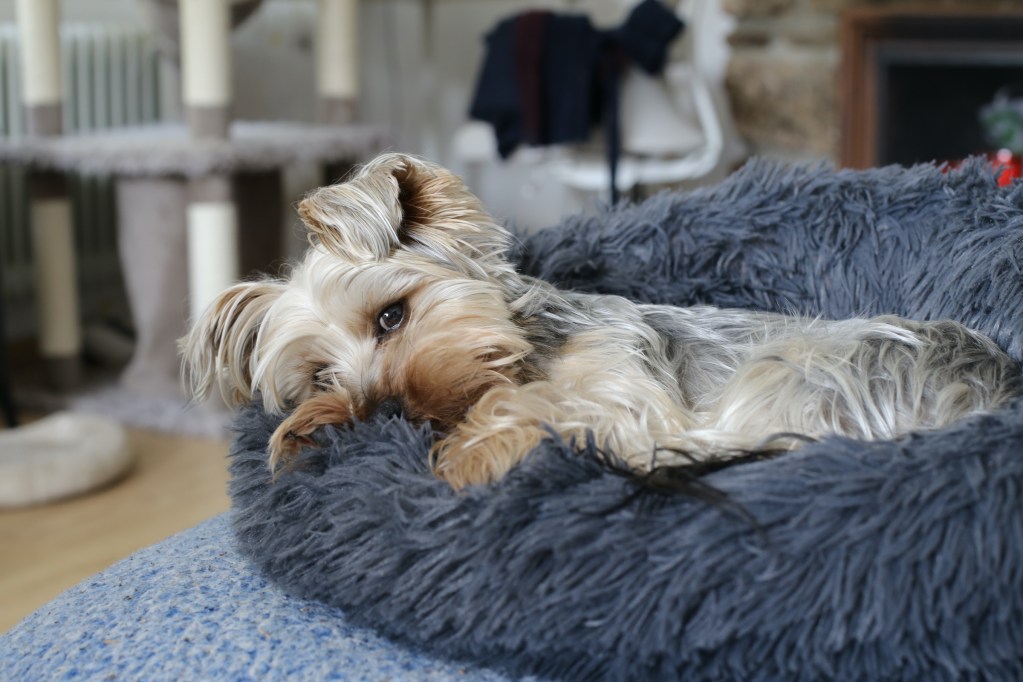
Is it OK for dogs to sleep all day?
So the short answer is yes, probably. Dogs do sleep quite a bit more than us, mostly in short naps. But if your pet has a sudden change in sleeping behavior, you should contact your vet. It could be a sign of something else, like a thyroid problem. Sometimes, animals nod off out of boredom, too (much like you might in a particularly long meeting), so counterintuitively, you should consider more walks or enrichment time if you’re able to rule out a health condition.

How to know if – and why – your dog isn’t getting enough sleep
Since dogs often need a lot of sleep to be their best selves, they can experience uncomfortable symptoms and moods when they aren’t catching enough z’s. In fact, these can be similar to the signs of sleep deprivation in humans: irritability, mood swings, lethargy, weakness, disorientation, and confusion.
It can be trickier to determine what’s causing your dog’s lack of sleep, though. Canines may need more sleep when they’re under the weather, or they may be unable to get comfortable due to a number of different reasons. Arthritis, gastrointestinal issues, and stress are just a few causes of sleep deprivation in dogs, and it’s important to find the root cause in order to help them get the restful sleep they deserve. A visit to the vet will help you narrow it down!
No matter how many hours he spends out for the count, make sure he has a comfortable spot for sleep. Some animals do best in a crate or dog bed, while others may wind up under your covers night after night. You want to make sure his sleeping area is free from distractions, so keep the toys out of the bedroom after dark unless you want to wake up to a tennis ball on your pillow. The final thing to consider: Dogs thrive on routine. Get into the habit of doing the same activities each night before you both retire, such as taking a night walk and then giving him a small treat. That way, you both get a full night’s sleep. Don’t worry — you’ll figure it out!
Editors' Recommendations
- Why does your dog lie on you? It’s (usually) a good thing
- The most adorable toy dog breeds (that also make great pets)
- These are the longest-living dog breeds
- How many dog breeds are there, really?
- 50 amazing boy dog names to consider for your new puppy



